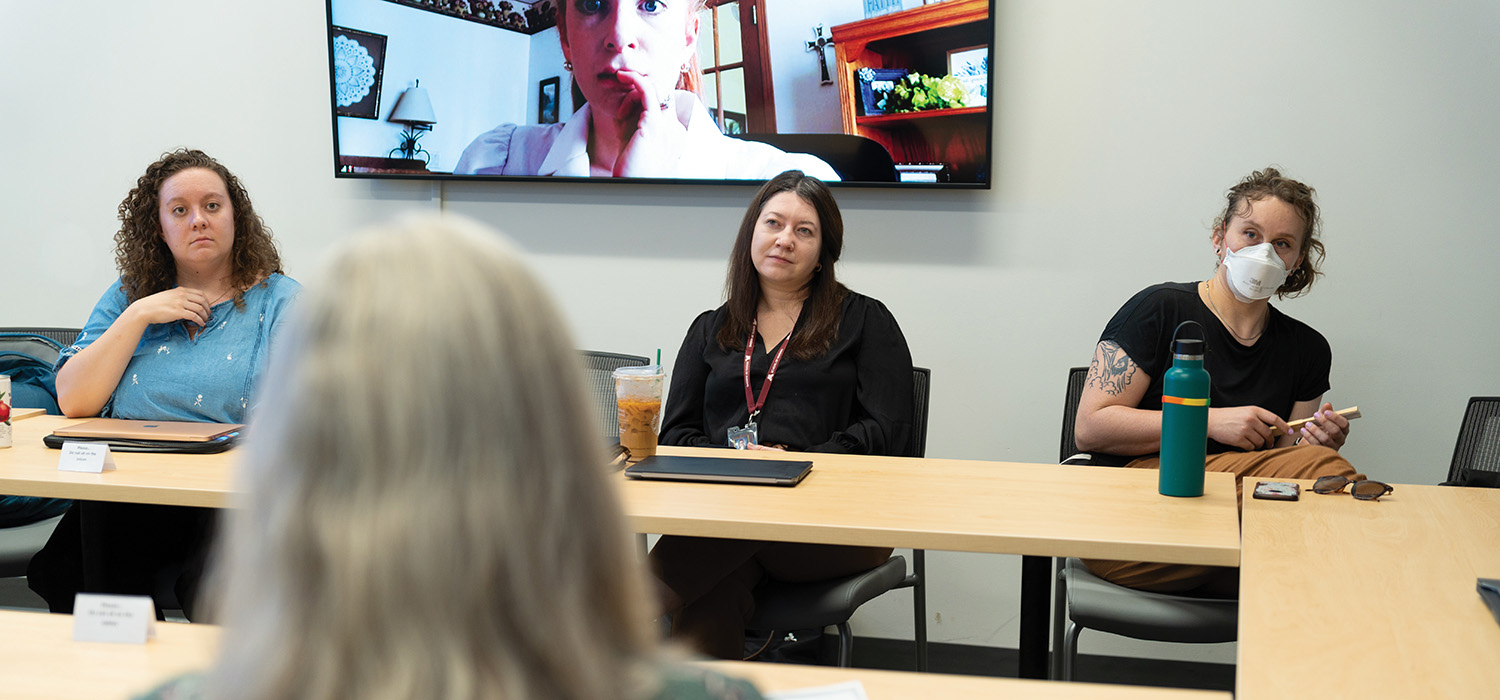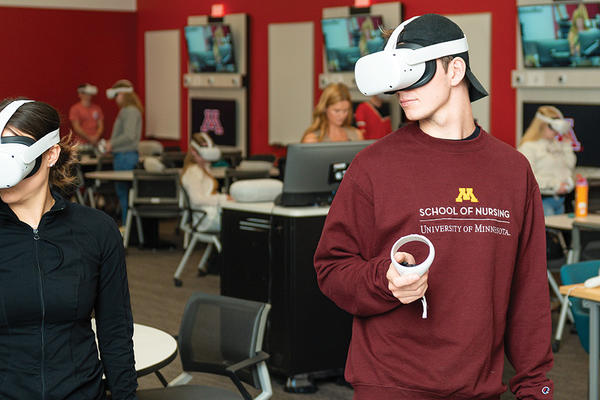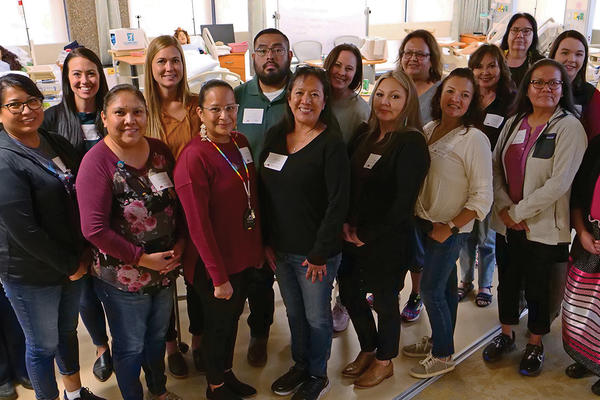First-of-its-kind course examines sexual, gender affirming health care
Course aims to reduce health equity gap experienced by 2SLGBTQI+ people
November 14, 2023
Brett Stursa

Above: DNP student Inga Knudson, far right, listens to guest speaker Laurie Sieve, an inpatient mental health nurse and mother of a transgender son.
For their final project, an interprofessional group of graduate students from nursing and social work presented a case study they designed on a transgender woman with complex health needs that weren’t being addressed by medical professionals.
The case study represented the culmination of what these students learned in a first-of-its-kind sexual and gender affirming course offered through the School of Nursing. The course Sexual and Gender Affirming Healthcare: An Interprofessional Approach, taught by Clinical Associate Professor Maria Ruud, DNP, APRN, WHNP-BC, and Assistant Professor Camille Brown, PhD, RN, covered topics including two-spirit, lesbian, gay, bisexual, transgender, queer, and intersex (2SLGBTQI+) affirming theoretical models, evidence-based practice guidelines, evaluation and management of health concerns, health disparities and policies.
“This class is key to promoting interdisciplinary team work among health care professionals working toward a reduction in the health equity gap experienced by two-spirit, lesbian, gay, bisexual, transgender, queer, intersex, asexual and other sexual and gender minority people,” says Brown.
Historically and currently, she says, 2SLGBTQIA+ people face significant discrimination in health care settings that deepen the health equity gap. At the same time, evidence shows that health care professionals do not receive sufficient training in creating supportive environments and providing affirming care for 2SLGBTQIA+ people and their families. “Students need a safe space, like a classroom, to learn how best to work together to promote healthy outcomes and make mistakes without unintentionally compounding harms to individual patients,” says Brown.
2SLGBTQI+ care across the lifespan
After a more than year of planning, the course was offered for the first time this summer. Classes covered 2SLGBTQI+ care across the lifespan, from childhood and adolescence specific issues to adulthood, family planning and aging. Students were provided historical perspectives, assessments of their own biases and an overview of policies impacting the health and wellbeing of sexually and gender diverse people.
“Over recent years students have started demanding more comprehensive curriculum,” says Ruud. “While the some of these concepts are taught in fragments throughout the curriculum, this course explores them deeper and more broadly.”
Interventions that drive organizational change
Inga Knudson, BSN, RN, a Doctor of Nursing Practice student in the family nurse practitioner specialty, says she enrolled in the elective course to gain a better understanding of the state of LGBT+ health care education. “I specifically am pursuing the family nurse practitioner track to support other queer and trans people in their health care experiences and want to focus my attention on the needs of those populations,” says Knudson, who sees the need for a course like this to be a requirement rather than an elective. “I feel familiar with things but I also wanted to know where things are at and to get a better sense of official health care position statements, resources and guidelines. What’s been most helpful to me was engaging in dialogue with my peers in the cohort to think about what interventions can be done on a clinic or structural level that will drive organizational change.”
A future with better understanding
Ruud says she hopes interest in the course continues to grow and expand, both with nursing students and students in the other health sciences schools, like medicine, dentistry and pharmacy. “My hope is that as we educate the providers of tomorrow that we’ll see better advocacy and understanding and we, as a society, won’t be as guided by mistruths and fearmongering,” says Ruud.


